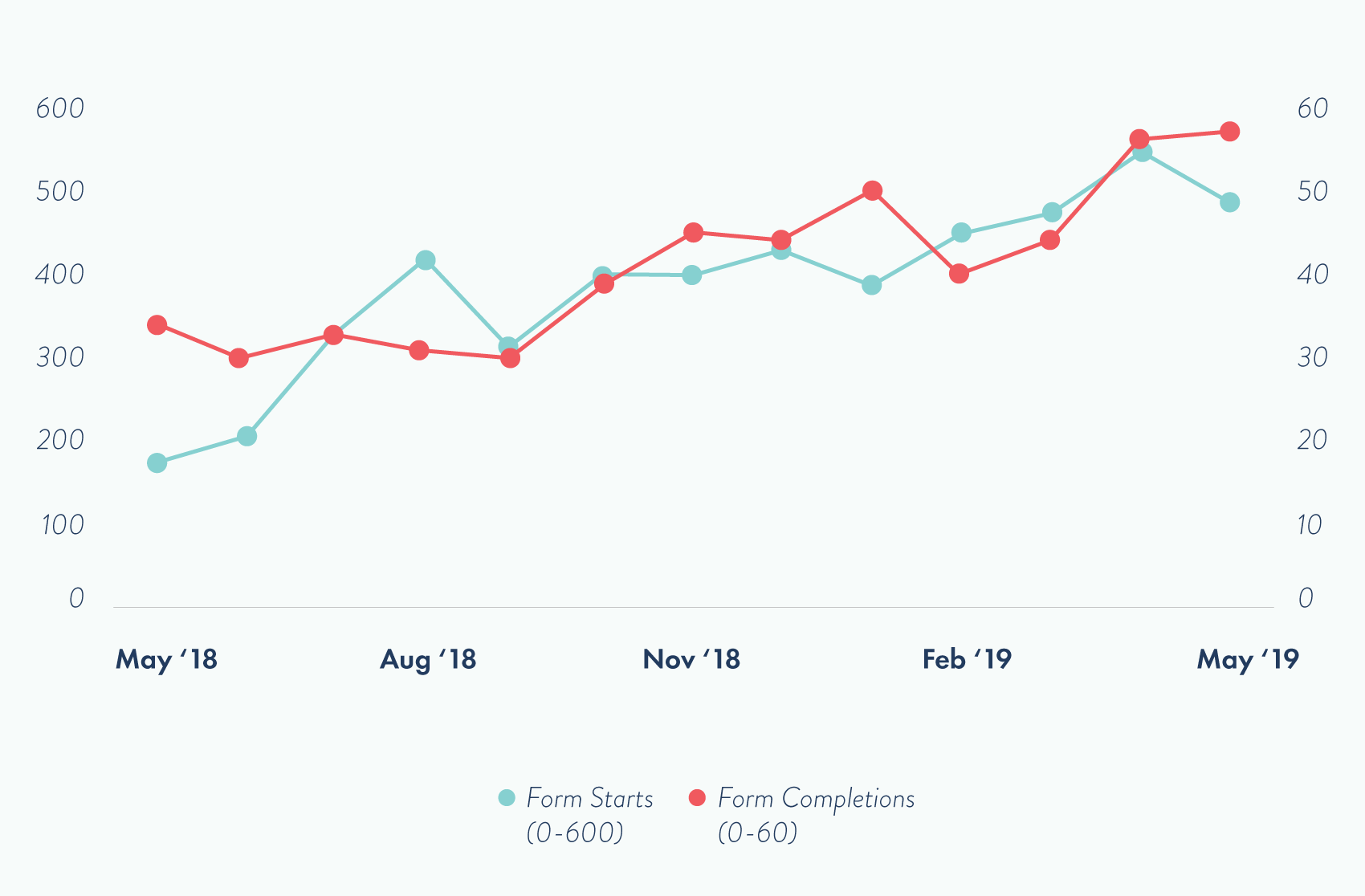The Story
How do you get prospective patients to share medical information online? By catering your marketing efforts around their needs. However, when you’re asking for potentially personal information, the stakes are much higher.
A Tennessee-based niche medical practice contacted Workshop Digital to help them improve their lead generation efforts. Our client was using a self-assessment form to ask questions about specific symptoms. That captured data was used to determine the severity of the patients’ condition—which signified the urgency of a request.
While this healthcare practice had a clearly defined target customer base, they wanted to build up a larger funnel of prospects by improving the effectiveness of their self-assessment form. Workshop Digital recommended paid search advertising to optimize their efforts.
The Challenge
The medical practice’s main challenge was overcoming low traffic volume. To grow their funnel of leads, they needed to get people to their website and increase the number of self-assessment form completions. Because people are generally more comfortable using traditional channels to convey personal medical information, there was an inherent high barrier for conversions.
Workshop Digital also realized that the medical practice needed to drive more efficiency in the collection and analysis of data. Thin data made it challenging for Workshop Digital to initially leverage Google’s automated bidding strategies.
The Plan
Workshop Digital developed a strategy to identify high-quality traffic and generate richer, more actionable data across Google Ads, paid search, and display. This meant establishing form starts as a goal in Google Analytics and as a micro-conversion in Google Ads. Richer data enabled Workshop Digital to drive relevant traffic and leverage Google’s Smart Bidding paired with shared budgets.
Landing page optimization and ad copy variations were used to drive lower CPCs and higher conversion rates. Testing helped uncover why users were clicking on the self-assessment (such as calling it a quiz rather than an assessment). Time was also spent removing parts that may prohibited users from completing the form.
The Result
Workshop Digital’s recommendations, strategies, and implementation resulted in an immediate cost-per-lead improvements for our client’s self-assessment forms—all at the same cost to our client.
Google’s portfolio automated bid strategy was able to leverage the new micro-conversion data to increase form leads by 90% and form starts by 134% within a year. In addition, CPCs decreased 87% from their peak.


